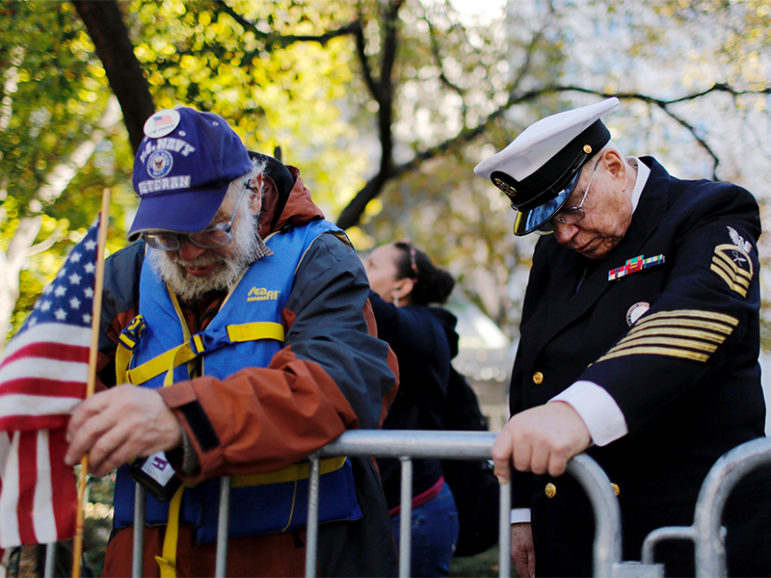About thirty years ago, a colleague told me about a very old man who came to Shabbat services. My colleague had not seen the man before that particular Shabbat service, and when the old man asked my colleague if they could speak privately, he agreed.
They went into the rabbi’s study. The old man began: “I know that rabbis don’t usually hear confessions, but I have something to tell you that I have never told anyone. I don’t know how much longer I have to live. I need to tell you a story so I can unburden myself.
“It happened about seventy years ago, during World War I. I was fighting in the war, in the trenches. At one point, I became involved in hand-to-hand combat with a German soldier.
“I took my bayonet, and I stabbed him in the chest. He fell at my feet.
“I could hear that he was whispering something. I put my head next to his lips, so that I could hear what he was saying — for those would surely be his last words.
“He was saying Sh’ma Yisrael [the Jewish statement of faith in God, which Jews traditionally say on the deathbed].”
The old man continued.
” That happened when I was very young. Most people go through life never having killed another human being.
“I killed one man in my entire life.
”I have never been able to forget, nor forgive myself — that here I am, a Jew, and the only man I have ever killed was a Jew. A Jew who knew the same ‘prayer’ that I knew, and who died with those words on his lips.
”Can you ever forgive me? Will God ever forgive me? Would that man’s family ever forgive me?”
It has been many years since I have thought of this story.
But, I am thinking about it today — Veterans’ Day, the one hundredth anniversary of the end of World War One. It was the war that was supposed to end all wars.
If a dream could laugh, that dream would be laughing in mockery.
I tell that story because it speaks to a greater truth.
The Jews are not simply a religion, and perhaps least of all, a religion. We are a people — a small people, but a large family — that has a religion, and a culture, and a nation, and a land, and languages, and foods, and music, and…
What was it that had haunted the old man for those many decades?
The war in Europe had divided nations and countries. The man was doing his patriotic duty.
But, he had never expected that he would have to kill a fellow Jew — a member of his extended family— who was doing his patriotic duty, as well.
The Israeli poet, Uri Zvi Greenberg, once wrote an epic poem about a young man in ancient Judaea who left home in order to seek his fortune.
One night, while he was sleeping in a field, his pillow burst into flame.
It was at that precise moment that the Romans had put the Temple in Jerusalem to the torch. Even though he was countless miles away, he felt the flames as if he were painfully close to them.
That is one of the greatest truths I know about what it means to be a Jew. To feel the flames, wherever you are.
And, to know that across national borders and allegiances, there are other Jews who will say the Sh’ma.
To that anonymous man in the story, I hope that when you died, God granted you the piece of mind you so richly deserved.
To you, and to those who served with you and emulated you across the generations: thank you for your service.






